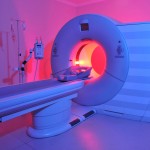
Oral mucositis is a common side effect of the treatment of malignancy with chemotherapy or radiotherapy. Two Cochrane reviews (see below) have looked more broadly at interventions for prevention and treatment of this unpleasant side effect of treatment. The aim of this review was to assess the protective effect of honey in head and neck cancer patients undergoing radiation therapy.
The authors searched PubMed, Medline and Embase via OVID, CINAHL via EBSCO and Cochrane library databases independently for Randomized controlled trials that investigated the protective effects of honey in head and neck cancer patients undergoing radiation therapy that used either the RTOG or WHO criteria in evaluating the severity of the radiation mucositis. Risk of bias was assess using the Cochrane methodology.
They identified 5 trials, one was excluded as it only reported rain relief with 3 of the remaining trials (total of 120 patients) being included in the meta-analysis. Two of the three studies had a high risk of bias. The overall relative risk of developing mucositis was almost 80% lower (risk ratio, 0.19; 95% confidence interval, 0.098–0.371)
They concluded
Despite promising results, the weaknesses of the individual studies highlight the need for further, more rigorous, randomized controlled trials. Future studies need to address the weakness of available studies by adequately describing the method of randomization and allocation concealment
Song JJ, Twumasi-Ankrah P, Salcido R. Systematic Review and Meta-analysis on the Use of Honey to Protect from the Effects of Radiation-Induced Oral Mucositis.Adv Skin Wound Care. 2012 Jan;25(1):23-28. PubMed PMID: 22218067.
Related Cochrane reviews
A noted above there are two Cochrane review that assess the literature on the prevention (Worthington et al) and treatment (Clarkson et al) of mucositis. The prevention review which was last assessed as up to date in March 2011 in included two the three studies included in this current review. The review summary states:-
Treatment for cancer (including bone marrow transplant) can cause oral mucositis (severe ulcers in the mouth). This painful condition can cause difficulties in eating, drinking and swallowing, and may also be associated with infections which may require the patient to stay longer in hospital. Different strategies are used to try and prevent this condition, and the review of trials found that some of these are effective. Two interventions, cryotherapy (ice chips) and keratinocyte growth factor (palifermin®) showed some benefit in preventingmucositis. Sucralfate is effective in reducing the severity ofmucositis, and a further seven interventions, aloe vera, amifostine, intravenous glutamine, granulocyte-colony stimulating factor (G-CSF), honey, laser and antibiotic lozenges containing polymixin/tobramycin/amphotericin (PTA) showed weaker evidence of benefit. These were evaluated in patients with different types of cancer, undergoing different types of cancer treatment. Benefits may be restricted to the disease and treatment combinations evaluated.
Worthington HV, Clarkson JE, Bryan G, Furness S, Glenny AM, Littlewood A, McCabe MG, Meyer S, Khalid T. Interventions for preventing oral mucositis for patients with cancer receiving treatment. Cochrane Database of Systematic Reviews 2011, Issue 4. Art. No.: CD000978. DOI: 10.1002/14651858.CD000978.pub5.
Clarkson JE, Worthington HV, Furness S, McCabe M, Khalid T, Meyer S. Interventions for treating oral mucositis for patients with cancer receiving treatment. Cochrane Database of Systematic Reviews 2010, Issue 8. Art. No.: CD001973. DOI: 10.1002/14651858.CD001973.pub4.
